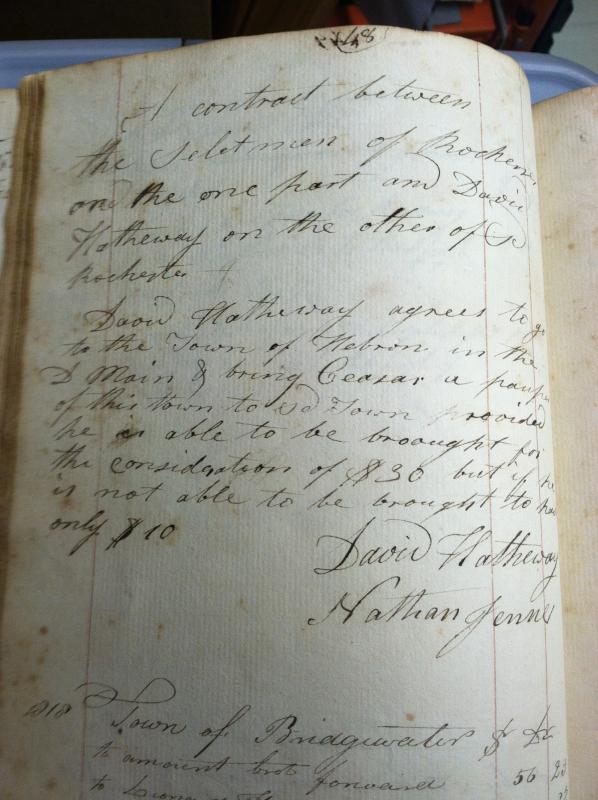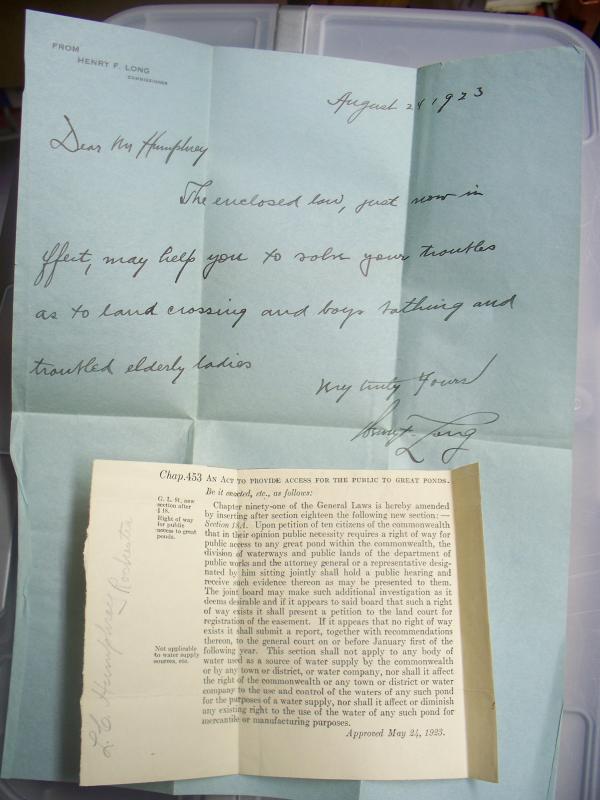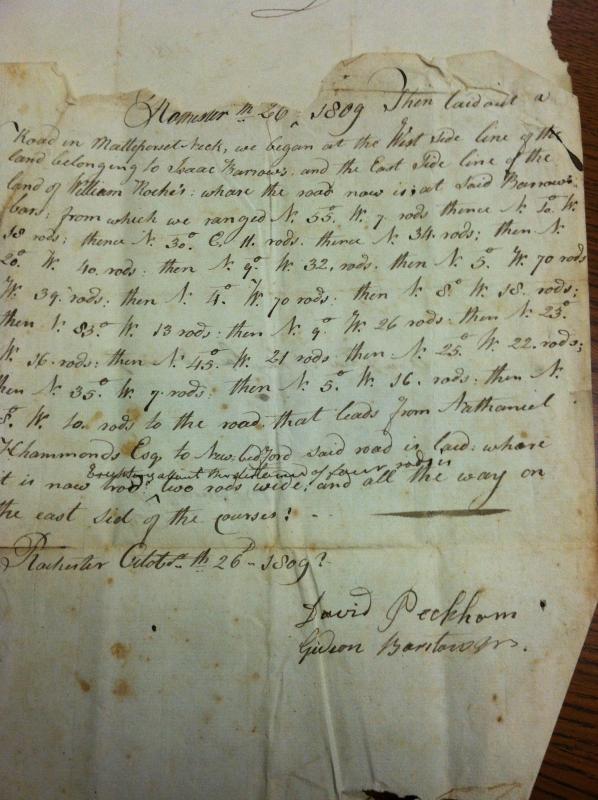Rochester's newly organized archives offer view into past
There’s a place for local history and it’s not old cardboard boxes, which is where many of Rochester’s records were being kept in the Town Hall vault.
A recent project by the Rochester Historical Commission has gone a long way towards organizing those records.
“We’re trying to make people realize that we have history here, and it’s available if you have a question and want to find out about things,” said commission member Laurene Gerrior.
Before Town Clerk Naida Parker was elected in 1984, Gerrior said some documents were thrown away.
During Parker’s tenure, however, she preserved a good portion of the records using town funds to have the documents deacidified and bound. But that funding dried up in recent years as budgets in town tightened, and many documents, which date back to the founding of Rochester in 1679, were unorganized.
Even those things that were bound had not been indexed.
With a $500 grant from the Rochester Cultural Council and help from archivist Kyle DeCicco-Carey, those stacks of boxes have been organized, archived and indexed.
DeCicco-Carey, a librarian at Harvard University, said even the mundane information in the documents provides an insight into the people of Rochester’s past.
“There’s all this documentation of these people that you wouldn’t get anywhere else,” he said.
Working on weekends and vacations, DeCicco-Carey waded through birth and death records, school curriculum, letters and petitions, finding biographical information along the way.
DeCicco-Carey, a Mattaposiett resident, has long had an interest in documenting the past.
“I’ve always been a collector,” he said. “I collected baseball cards when I was a kid. Then I started collecting old mitts from the 20s, old newspaper clippings.”
Of preserving the past he said, “I think it is just one of those things I was meant to do.”
Buried in the records, DeCicco-Carey found a petition to the state senate to form a new county composed of Troy (Fall River), Dartmouth, New Bedford, Fairhaven, Wareham and Rochester.
He also found a somewhat humorous letter indicating some ladies were distraught over a group of boys bathing in one of the ponds in town.
Enclosing an article on new legislation, the letter write wrote: "[It] may help you to solve your troubles as to land crossing and boys bathing and troubled elderly ladies."
The archivist was particularly interested in information he found on almshouses. Records detailed the names, origins, property and sometimes deaths, of the poor.
“You hear a lot about the shipbuilders and the people with money…but common people and people in lower parts of society you don’t know anything about,” said DeCicco-Carey. “This is kind of like an insight into these hard times that people faced that often just get forgotten, but their lives are recorded.”
Sometimes other towns’ archives and genealogy records online can also fill in the blanks, he said.
Parker said genealogy is the top reason people seek out the town’s historical records. If somebody needed specific information before, she said it could turn into a “search mission.”
With the index for the records now available online, people should be able to get a better sense of what and where specific records are.
The Historical Commission received a similar grant to organize the documents of the First Congregational Church with Betty Beaulieu. The church was the first depository of records when the town was still a settlement.
“We want to make sure it’s saved for future generations to be able to look at,” said Gerrior.
In the future, she hopes the commission can further preserve the documents by getting them professionally deacidified and bound and hopefully digitized.
The index of town records is available on the town’s website, www.townofrochestermass.com, in the town clerk archival collection.


















